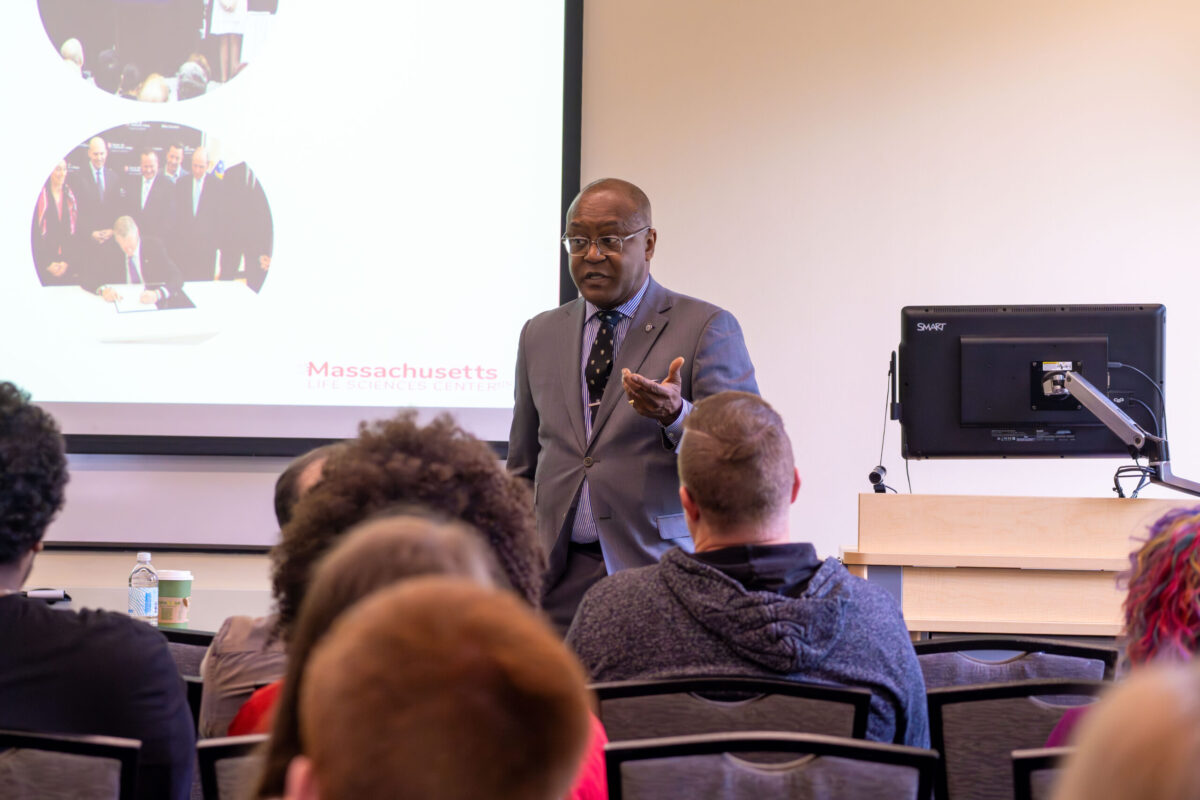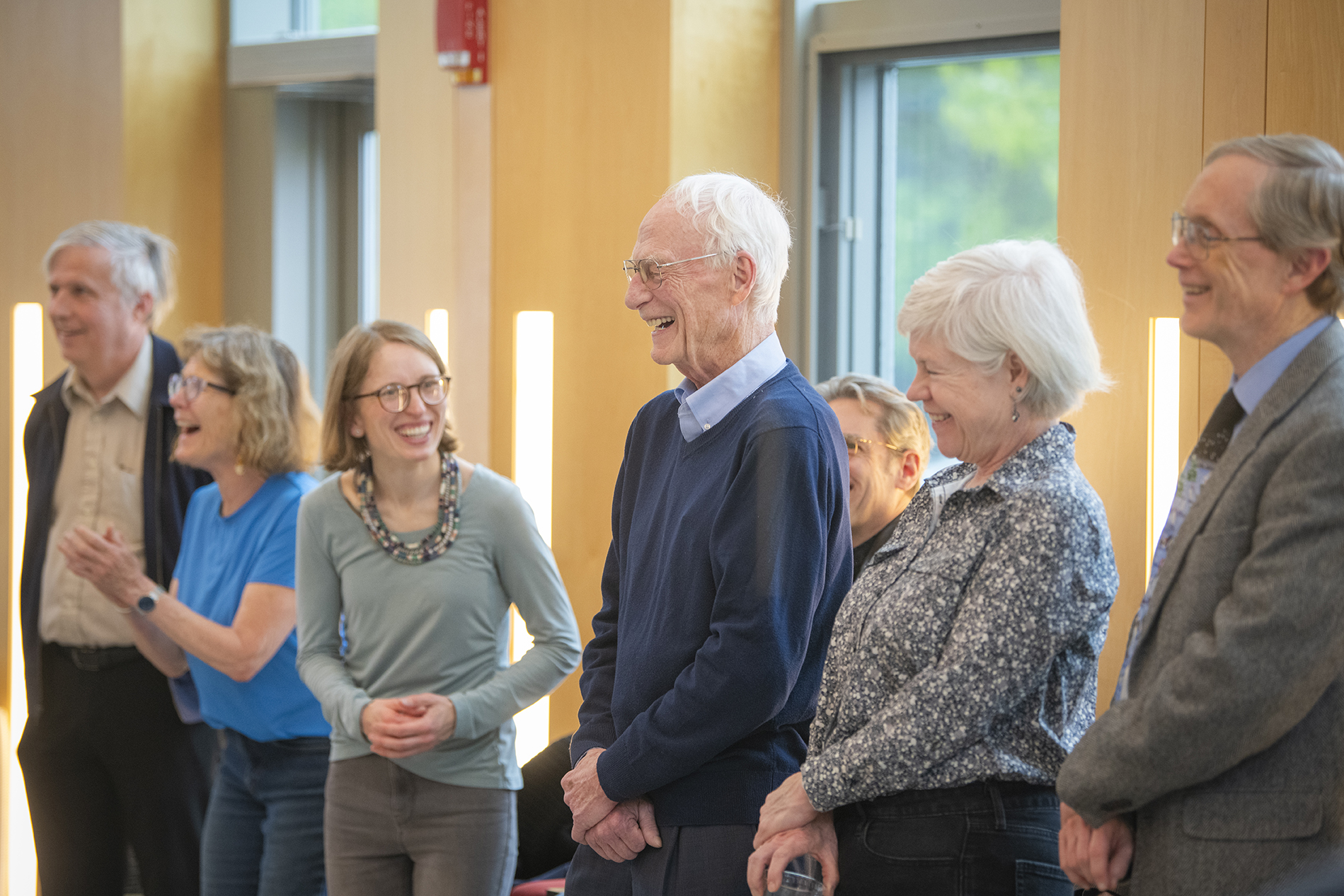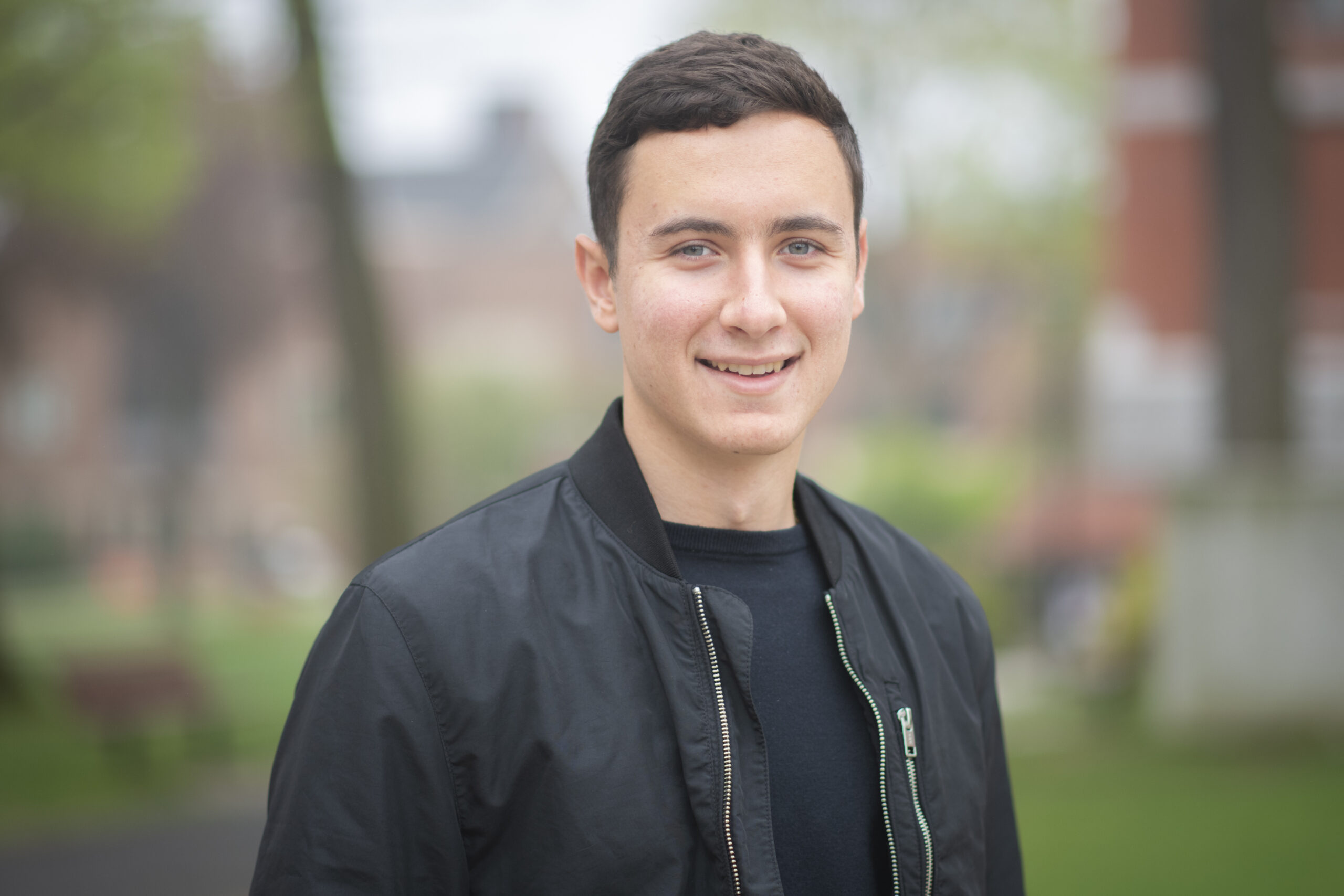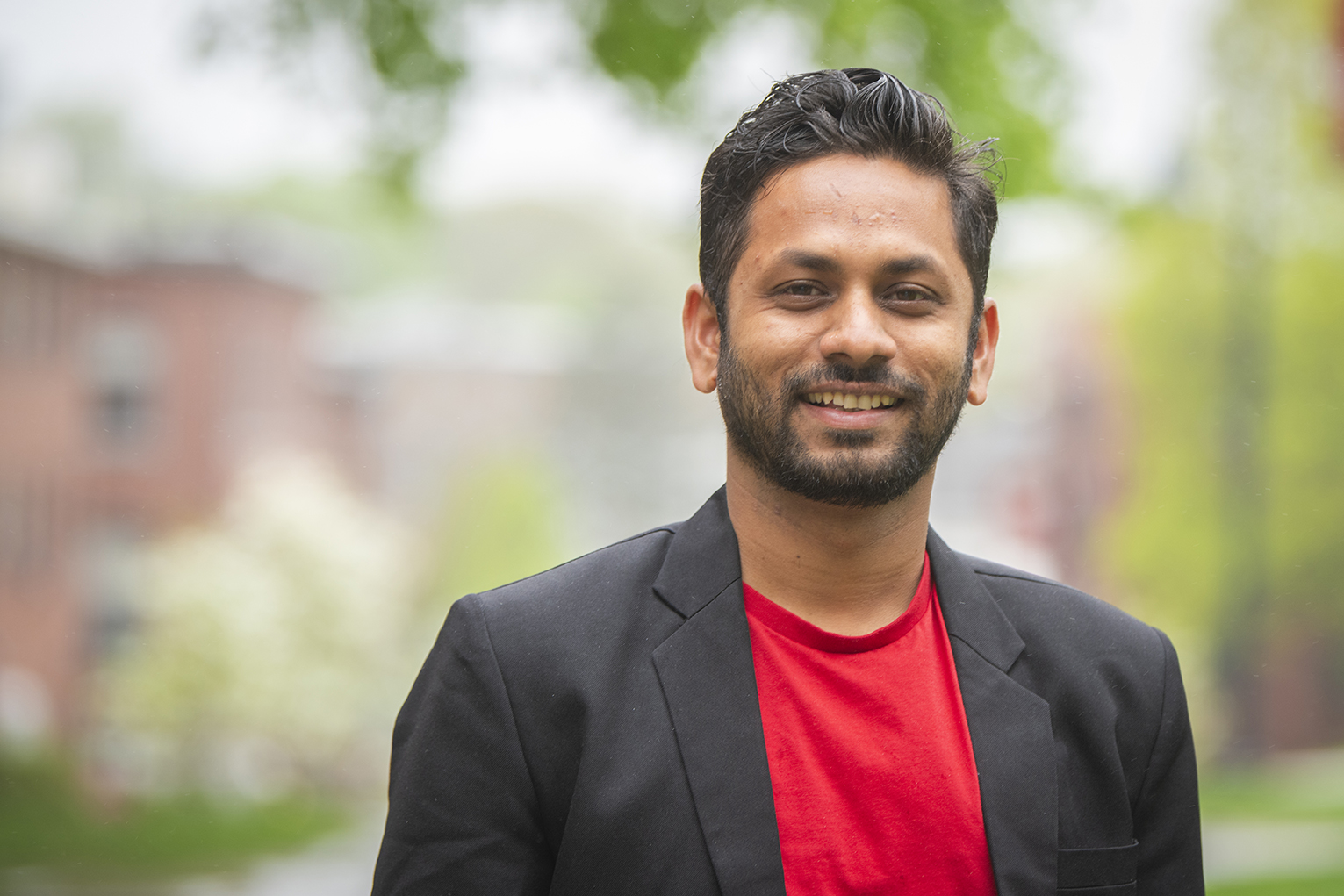Massachusetts Life Sciences Center CEO encourages students to find mentors
Kenn Turner, the president and CEO of the Massachusetts Life Sciences Center, spoke to Clark students about internship and career opportunities. Photo by Natalie Hoang ’25A hub for life sciences in Massachusetts has sponsored thousands of internships and wants to sponsor thousands more, helping students build a bridge from college classes to innovative careers.
Kenn Turner, the CEO of the Massachusetts Life Sciences Center (MLSC) told dozens of Clark students on Tuesday, Sept. 26, that the “life sciences ecosystem” in Worcester is growing rapidly. Students here have opportunities, Turner said in an Innovation in Action speaker series lecture. The speaker series, sponsored by the School of Management, is a chance for students, faculty, and staff to hear about innovation, incubation, and entrepreneurship.
“The Massachusetts Life Sciences Center believes in Worcester,” Turner said. The Center is a quasi-public agency that receives public and private funding to support innovation, research and development, and manufacturing activities in the fields of biopharma, medical device, diagnostics, and digital health while creating jobs and driving workforce development.
The Center has sponsored 5,844 internships for life sciences careers, created 16,000 jobs, and funded $41 million of investments into the life sciences workforce in Massachusetts. Turner encouraged students to research paths to life science careers and emphasized the importance of ensuring minority and low-income demographic groups are represented in the industry’s growth.
“Talent is equally distributed. Opportunity is not,” Turner said.
The Center is pioneering a program called Pathmaker, which seeks to elevate Massachusetts as a leader in health care and health equity. By fighting to keep medical manufacturing in Massachusetts and creating jobs for all skill levels, the Center aims to narrow the income equality gap. Turner said keeping medical manufacturing local is vital for faster innovation in research fields, building generational wealth, financial equity, and convenience.
Turner encouraged students to find mentors to guide them through career training.
“If you don’t have a mentor, get one,” said Turner, who believes that the strongest indicator of future success is strong guidance. He also encouraged students to explore creative avenues in their careers and to diversify their interests. A variety of career paths, including roles in the military and the private sector, led Turner to the Center.
“You are not going to end up where you started,” Turner said, “and that’s all right.”





